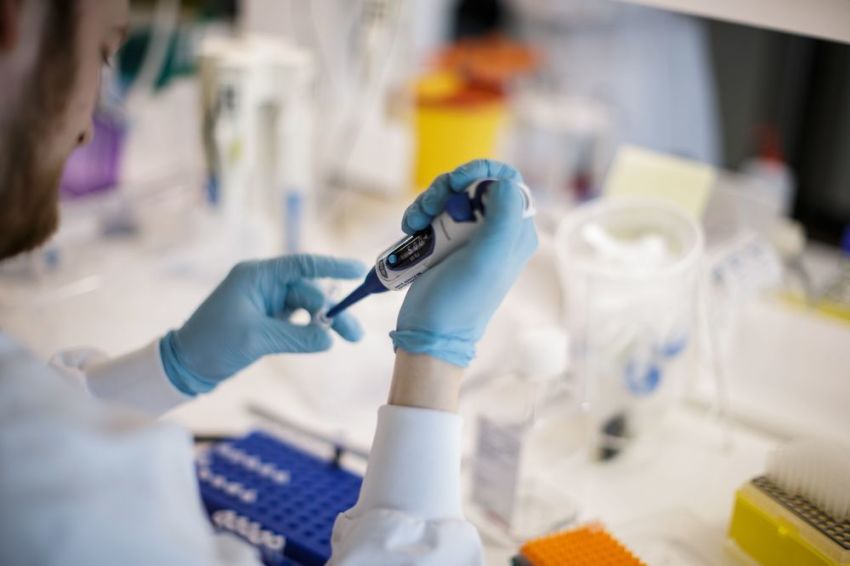More contagious COVID variant found in 15 US states

While more than 23.5 million people in the U.S. have been infected with COVID-19 and over 392,000 of them have died, a variant of the novel coronavirus that's even more contagious has been found in at least 15 states and might lead to a further rise in the number of cases and deaths, according to health officials.
“I want to stress that we are deeply concerned that this strain is more transmissible and can accelerate outbreaks in the U.S. in the coming weeks,” The New York Times quoted Dr. Jay Butler, deputy director for infectious diseases at the Centers for Disease Control and Prevention, as saying. “We’re sounding the alarm and urging people to realize the pandemic is not over and in no way is it time to throw in the towel.”
At least 88 cases of the variant of the coronavirus, known as B.1.1.7, first identified in Britain have been found in 15 U.S. states, as of early Saturday, according to the CDC.
At least 40 cases have been detected in California; 22 in Florida; five each in Colorado and Minnesota; four in New York; two each in Texas, Maryland and Connecticut; and one each in Utah, New Mexico, Nebraska, Wisconsin, Indiana, Pennsylvania and Georgia, a CDC map shows.
Experts say the containment of these new variants would require an expansion of testing and genomic sequencing, contact tracing, social distancing, mask-wearing, and other efforts to limit the spread of the virus.
On Thursday, a team of experts, led by the World Health Organization, arrived in China’s Wuhan city to investigate the origin of the novel coronavirus.
The experts will stay in Wuhan for about a month and Chinese authorities will arrange for them to visit the Huanan food market, local scientific research institutes, and hospitals, according to The Epoch Times.
“WHO is just a figurehead in my eyes — a tool, to put it bluntly,” a local resident, identified as Zhang Hai, whose father died of COVID-19 last year, was quoted as saying. “It is now looking for the source of the virus, and the first anniversary of the outbreak has passed, and all (evidence) is gone.”
Zhang filed a suit at the Wuhan Intermediate People’s Court last June, alleging that the government’s decision to cover up information about the outbreak was behind his father’s death.
Seeking compensation of roughly $286,730 from Chinese authorities, he argued that the Wuhan city government, Hubei provincial government, and General Hospital of Central Theater Command in Wuhan were responsible.
The Wuhan municipal court rejected the case, and Zhang filed a second lawsuit two months later at the Higher People’s Court in Hubei Province, which rejected his case. In October, he filed a civil complaint to the Supreme Court in Beijing and is awaiting a response.
On Thursday, U.S. Secretary of Health and Human Services Alex Azar accused China of “severely limiting” outside access to information about the coronavirus.
“Let’s consider when and how the United States became aware of the virus,” Azar said during a speech at conservative think tank The Heritage Foundation. “We learned about an outbreak of pneumonia of unknown origin in Wuhan, China, on December 30 (2019), not through that country’s official channels, as required under the International Health Regulations, but through media monitoring that we do, as well as through a notification from Taiwan’s Economic and Cultural Office here in the United States.”
On Friday night, the U.S. State Department said there was “reason to believe” that scientists at the Wuhan Institute of Virology might have been infected with COVID-19 in the autumn of 2019, but China didn’t allow a transparent investigation.
“The [Chinese Communist Party] has prevented independent journalists, investigators, and global health authorities from interviewing researchers at the WIV [Wuhan Institute of Virology], including those who were ill in the fall of 2019,” the State Department said. Any credible inquiry into the origin of the virus must include interviews with these researchers and a full accounting of their previously unreported illness.”
Meanwhile, Stephane Bancel, CEO of Moderna, the maker of one of two coronavirus vaccines approved for use by the Food and Drug Administration, said this week he believes the virus could be around “forever.”
“We are going to live with this virus, we think, forever,” he said during a panel discussion at the annual JPMorgan Healthcare Conference, according to a CNBC report.
Kristian Andersen, an infectious diseases expert at Scripps Research Institute, told Stat News in a report Thursday, “I’m very, very concerned that we’ve now gone from a virus that we could control to a virus that we really can’t unless we do something very dramatic.”



























